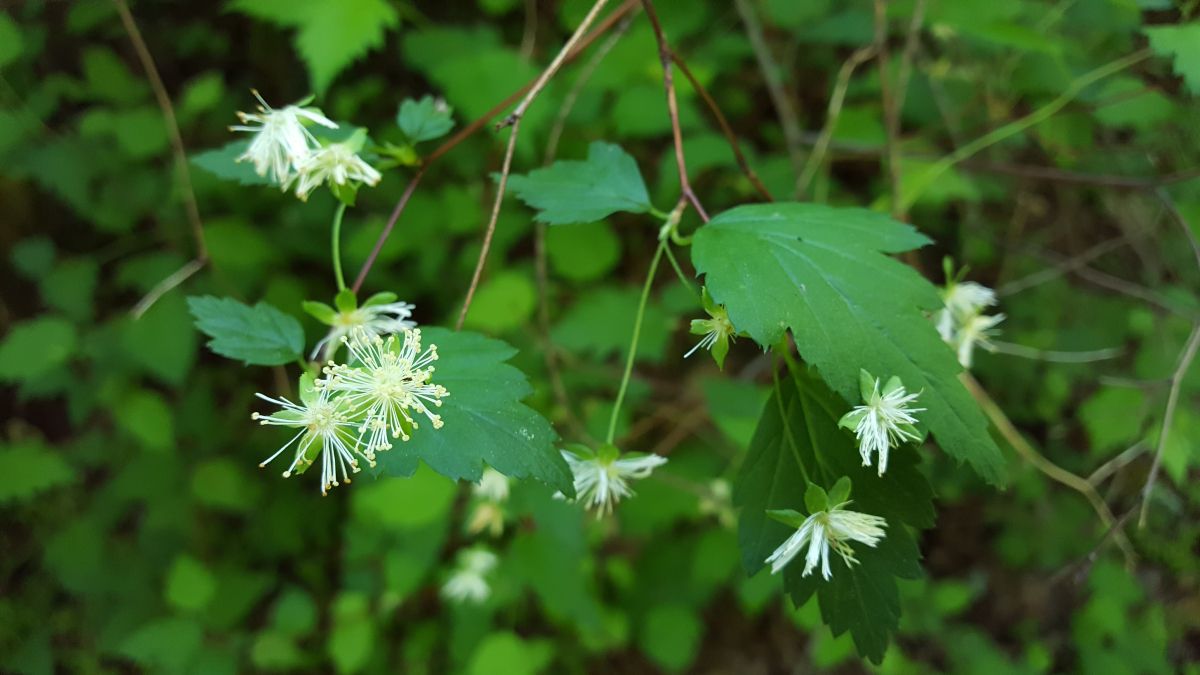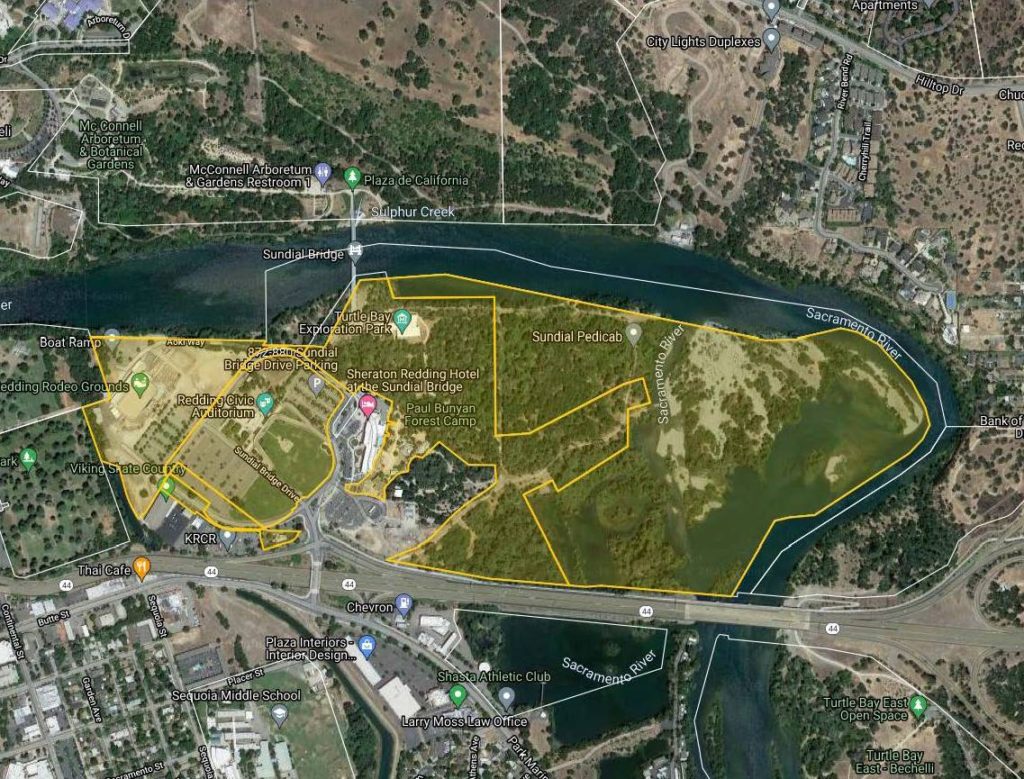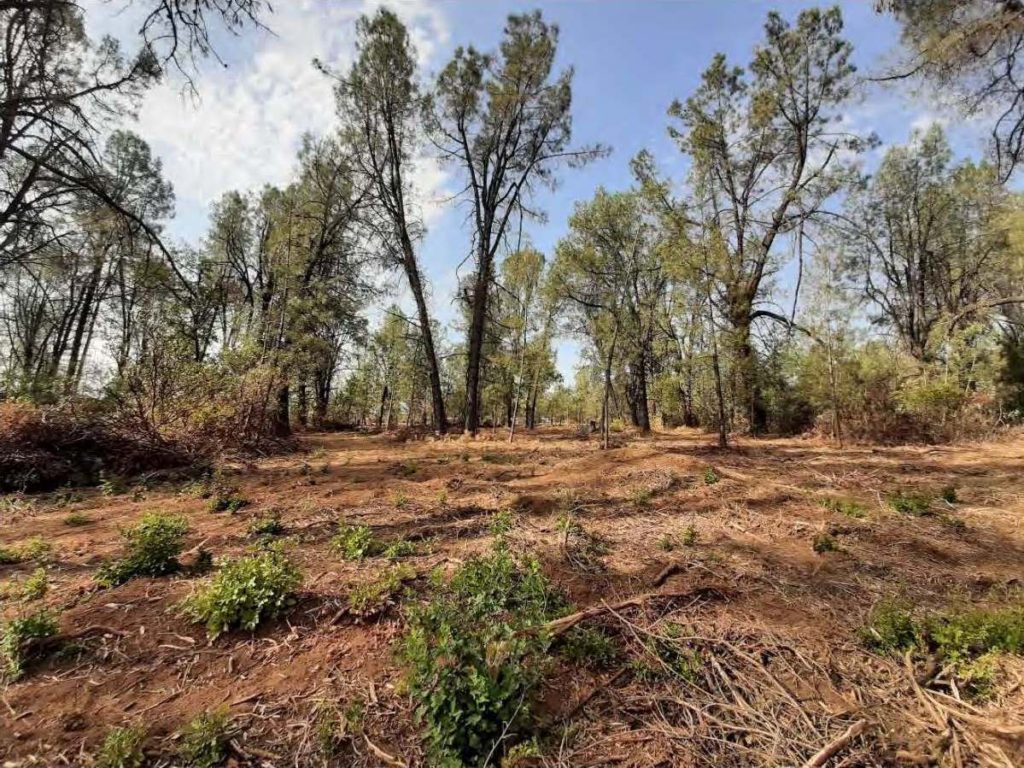
Shasta snow-wreath
The status of Shasta snow-wreath (Neviusia cliftonii) will be going before the California Fish and Game Commission on February 16 and 17 for a final determination as to whether it will be listed as endangered and receive protection under the California Endangered Species Act. This has been a two-year-long process, but the species has been recommended for listing and it is expected to be approved by the Commission at the February meeting.
Intensive Development at Turtle Bay
As many of you know, a proposal to buy some 45 acres of City of Redding land at Turtle Bay is being considered by the City Council following an offer to purchase the lands by Populous, the McConnell Foundation, K2 Development, and Turtle Bay Exploration Park. At four workshops that Redding City Council has held, Populous and City Manager Barry Tippin have emphasized that the only land that will be sold will be that area occupied by the Redding Convention Center and the Redding Rodeo grounds and adjacent parking areas.
However, the proponent’s proposal has been very vague. At meetings, it has been mentioned that it may also include moderate-income housing. There is concern that this development will expand into the natural areas of Turtle Bay, especially when you read some of their grandiose plans. This could take place without the sale of other land. Turtle Bay Exploration Park leases a large part of the undeveloped natural area at Turtle Bay and is supporting this project. Below are just a few of the proposals the developer submitted to the City:
- children’s play areas
- ziplines
- beer gardens and dog parks
- viewscapes along the water’s edge
- variety of restaurants, cafés, and other unique retail experiences along the water
- art installations in and around the water
- access opportunities deep into the site
- floating boardwalks and viewing platforms
For in-depth reporting on this proposed land sale, go to www.shastascout.com

Giant Gray Pine and Oak Removal Plans on Airport Road
A new 250,000 square foot distribution center is being proposed for development on 39 acres of land on Airport Road in Redding. There are 890 trees over six inches in diameter on the property, with one gray pine measuring 54 inches diameter at breast height (dbh). Twenty-two trees were identified as “candidate trees,” which are trees of exceptional quality; all but eight of these landmark trees will be clearcut.
About half of the parcel is mostly chaparral with scattered trees; however, the northern half has some very large gray pines and oak trees. Ten gray pines are 38 inches dbh or larger; 10 valley oaks are greater than 20 inches dbh, three are over 30 inches dbh, and the largest valley oak is 33 inches dbh; and one ponderosa pine is 36 inches dbh (this one will remain);
The City has determined that this massive project can be addressed through a Mitigated Negative Declaration and does not require a formal Environmental Impact Report. This means that the City is claiming that there will not be a significant adverse effect on the environment if mitigation measures are put in place. The California Environmental Quality Act states that an agency has to consider the cumulative adverse environmental effects of development in an area and cannot continually piecemeal smaller projects in an area without considering the combined negative adverse effects. Except for scattered patches, almost all of Airport Road will soon be devoid of its oak woodlands except for the US Forest Service facilities.
On the positive side, the City will require the developer to landscape with California native trees, shrubs, and herbaceous plants—a new step for the City of Redding. Unfortunately, only 127 trees will be planted that, in 100 years, will not mitigate for the loss of habitat from the removal of the trees. These new trees will be scattered through out the parking lots and green areas.
Trees that will be planted are: interior live oak, coast live oak, blue oak, California bay, Oregon ash, western redbud, California buckeye, California sycamore, gray pine, and non-native olive.
~David Ledger, Conservation Committee Chair

